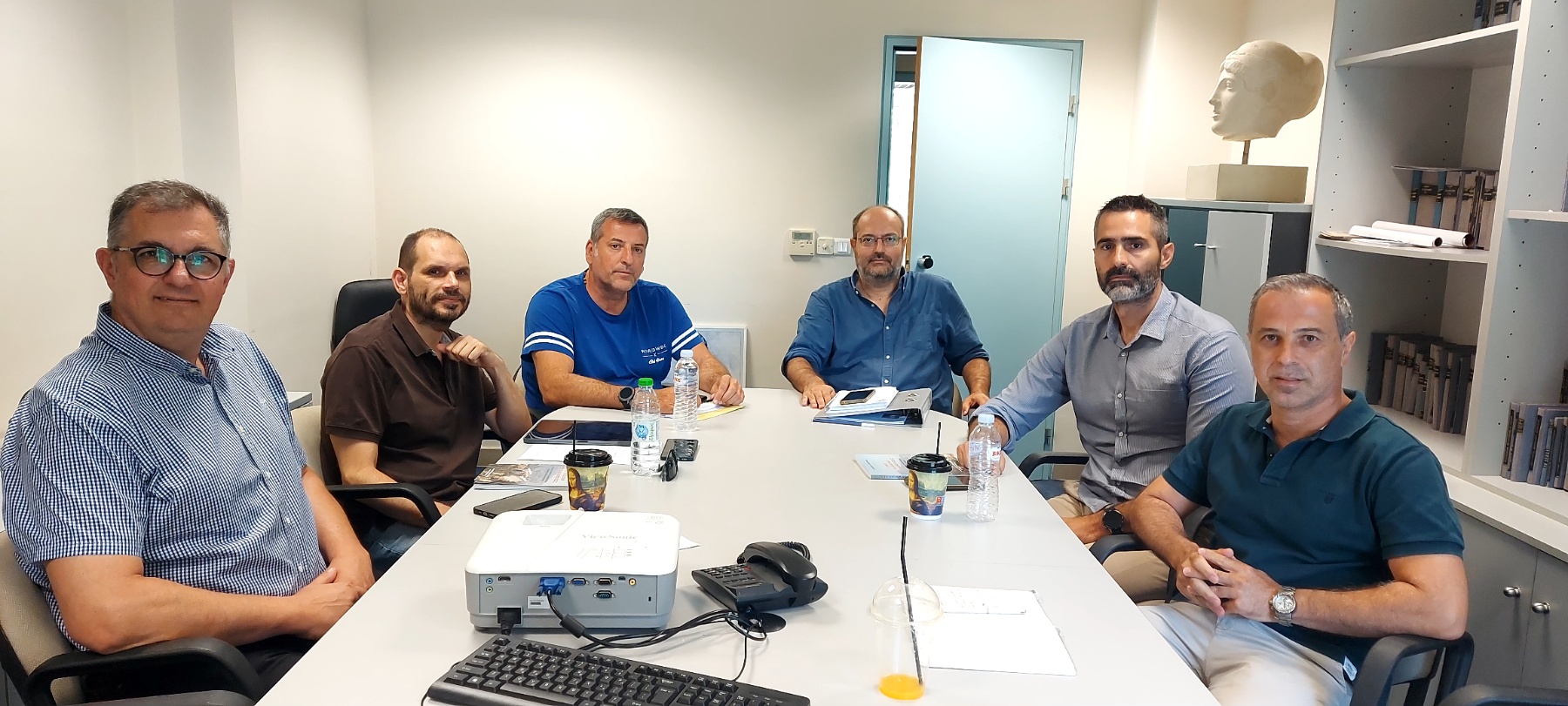The Region of Western Greece, as the Lead Partner of the European project “HERIT ADAPT – HERItage and territory resilience through sustainable Tourism, climate change ADAPtation and ciTizen engagement,” in the context of the Interreg Euro-MED Programme, within the framework of the operational mission of Sustainable Tourism, held the 2nd meeting of the working group with the Ephorate of Antiquities of Ilia, on July 25, 2024, at 10:30 a.m., at the offices of the Ephorate of Antiquities of Ilia, which is an Associated Partner of the Project.
In the meeting participated HERIT ADAPT Technical Manager and Partner of Deputy Governor of Tourism Development of the Region of Western Greece Mr. Konstantinos Tzamaloukas, the Deputy Director of the Research & Innovation Center in Information Communication and Knowledge Technologies, Industrial Systems Institute – ATHENA, Mr. Athanasios Kalogeras, the Principal Researcher of the Industrial Systems Institute, ATHENA Research and Innovation Center, Mr. Georgios Mylonas, the Associate Researcher Mr. Christos Anagnostopoulos, the Officers of the Ephorate of Antiquities of Ilia, the Deputy Head of the Department of Archaeological Works & Studies Mr. Konstantinos Papadopoulos, and the Archaeologist of the Ephorate of Antiquities of Ilia Mr. Konstantinos Antonopoulos.
During the meeting, the preparatory actions required for the pilot implementation of the sustainable tourism model were noted, aiming to identify the resilience needs of Cultural Heritage monuments in response to climate change. The model will be applied in 8 selected pilot areas of the Euro-MED, including UNESCO sites as well as lesser-known monuments, coastal and mountainous areas, among which is the Temple of Epicurean Apollo.
The Ephorate of Antiquities of Ilia, as the responsible body for the preservation, maintenance, promotion, and protection of the archaeological site of the Temple of Epicurean Apollo, plays a supportive role in the project’s implementation as an Associated Partner, providing advisory support in the pilot action where technical activities will take place, such as:
- 3D modeling of a section of the monument using photogrammetry techniques.
- Utilization of applications developed within other European projects to annotate the resulting 3D model and apply Artificial Intelligence algorithms to detect defects (e.g., missing parts, fractures, etc.).
- Investigation of the Sustainable Tourism Model in the area centered around the monument and its connection with activities and other points of interest in the broader region.
Lastly, the necessity of forming local Territorial Working Groups (TWGs) was highlighted, aiming to develop Sustainable Tourism Models to protect the monuments from climate change. Meetings with municipalities and other involved bodies in the broader area of the Temple of Epicurean Apollo will be scheduled in the near future.


